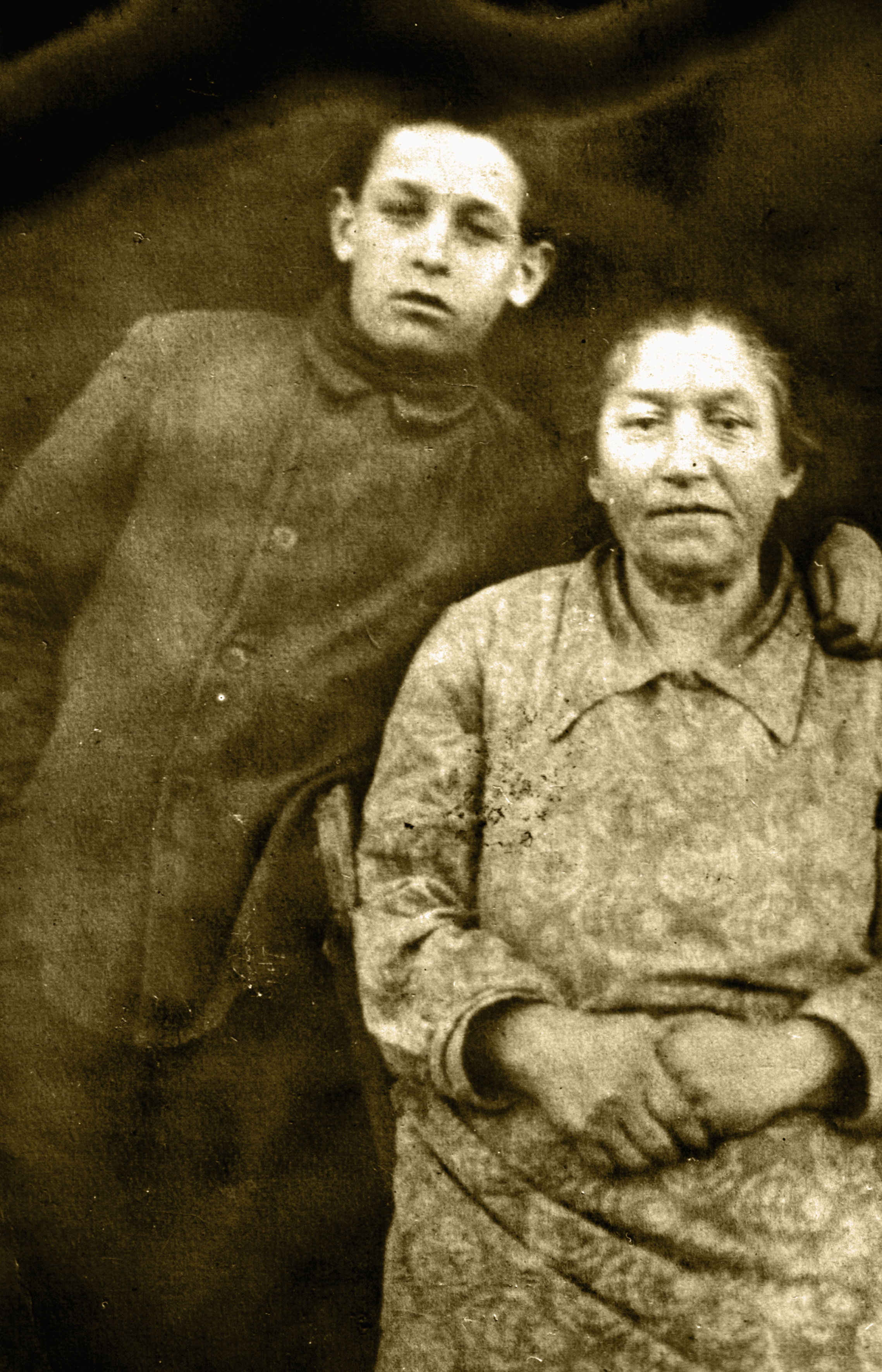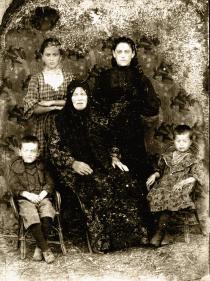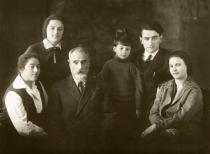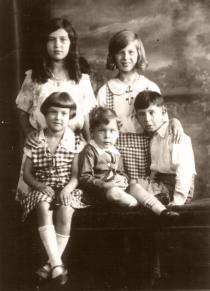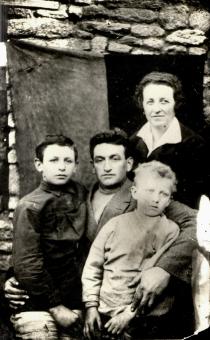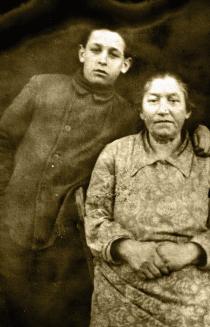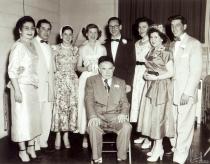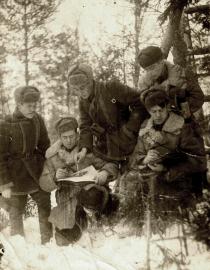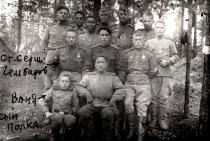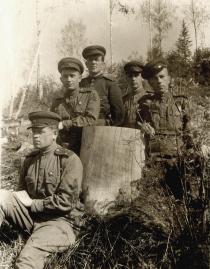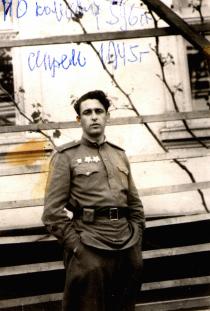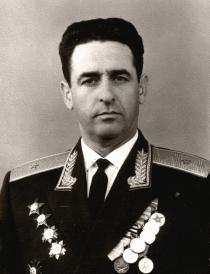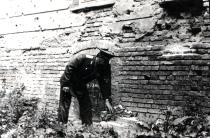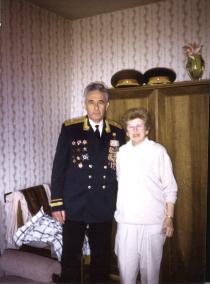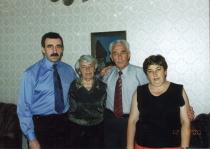This photograph was taken in Dobroye in 1930. This is me with my grandmother Zipora Bograd.
My grandmother Zipora, born in Dobroye in 1875, worked in the fields all of her life.
My grandfather had two to three horses and two or three cows that my grandmother took care of. My grandmother was a housewife, which was common with Jewish women.
There was a big table for 12-15 people in the dining room. We always had poor people visiting us on holidays and my grandmother gave them food to take home. She was a very kind person.
Her daughters-in-law, my mother and Aunt Sonia helped her in the house. My grandmother didn't cover her head at home. She had black hair which she wore in a long plait. She wore plain clothes. She usually had her housecoat on.
My grandparents were religious. My grandfather went to the synagogue at dawn before and after work. My grandmother always went to the synagogue on holidays.
She covered her head with a black lace shawl and she and I went to the upper tier. She pointed out to me my grandfather who sat on the ground tier.
When I went to cheder, I started going to the synagogue with my grandfather. He used to sit in the first row and I sat beside him. There was a mezuzah on the door of each house.
On Sabbath and holidays we lit candles. I remember the hard times, when there were no candles available, my grandmother removed the inside of a potato, poured some oil inside and installed a piece of cotton wool.
My grandmother insisted that I go to cheder in 1926. I didn't feel like taking any learning responsibilities, but grandma said, 'No, it's going to be the cheder and that's that.' I went to cheder with our neighbor's boys.
Then I went to the seven-year Jewish school where all the subjects were taught in Yiddish. In the early 1920s, our young people organized the agricultural commune 'Novy byt' actually it was a prototype of the kibbutz in Israel, but unfortunately, there was a direction to establish kolkhozes.
Two kolkhozes were formed. There was a special agricultural farm established five kilometers from the colony for the children of the kolkhoz members to receive a secondary agricultural education.
I had a wonderful childhood and enjoyed doing any work. I worked in the field, in the vineyard, on the threshing floor, harvesting corns and sunflowers.
